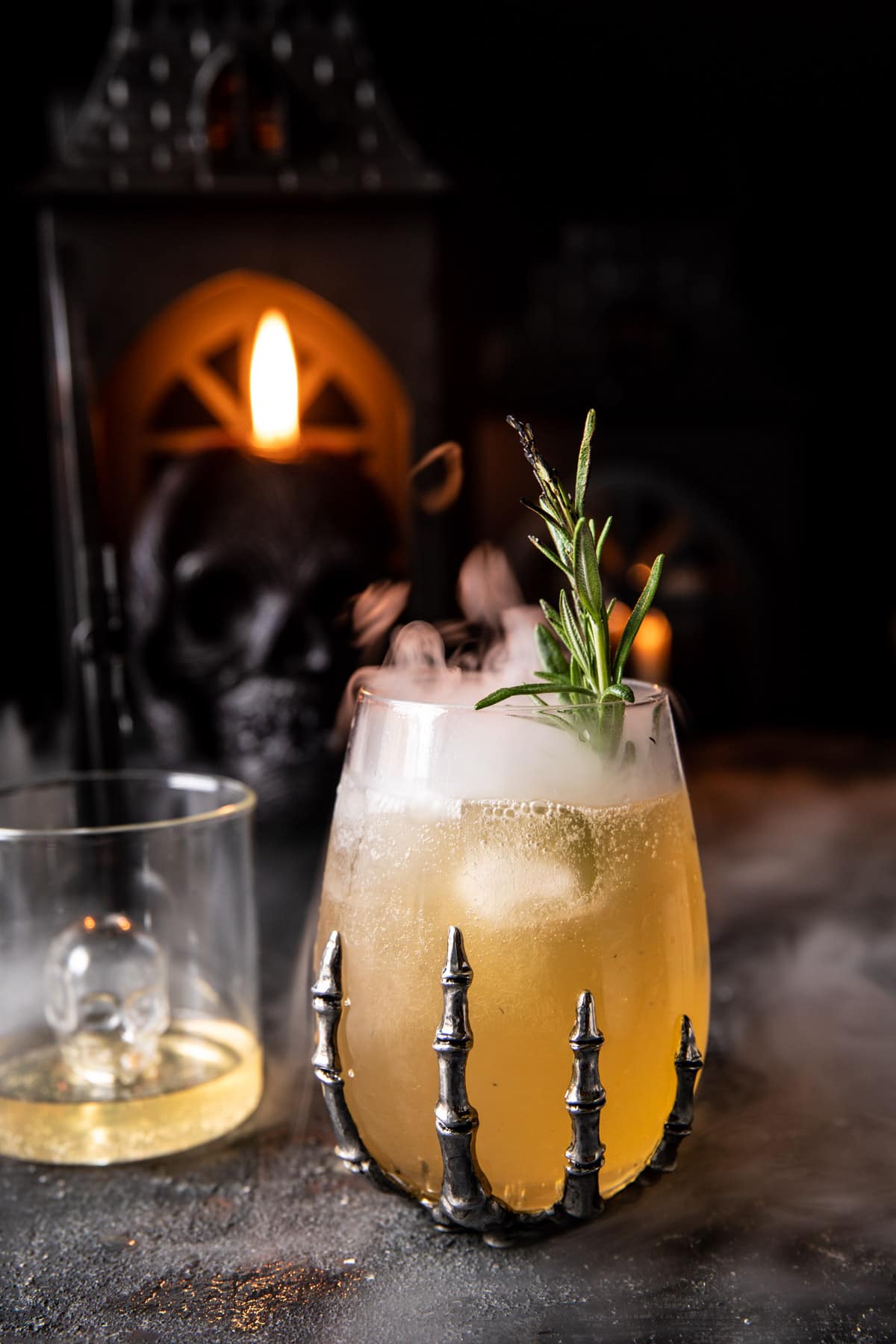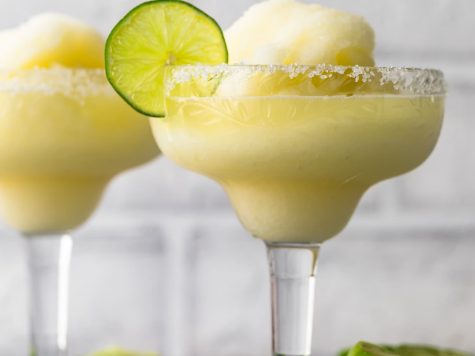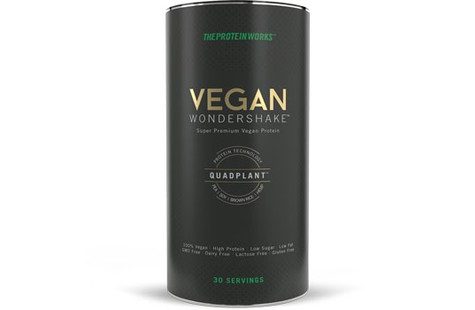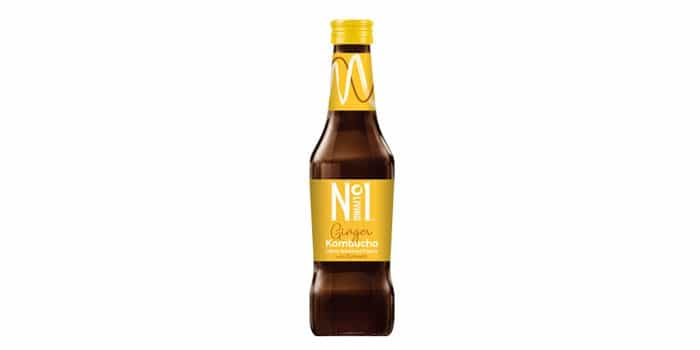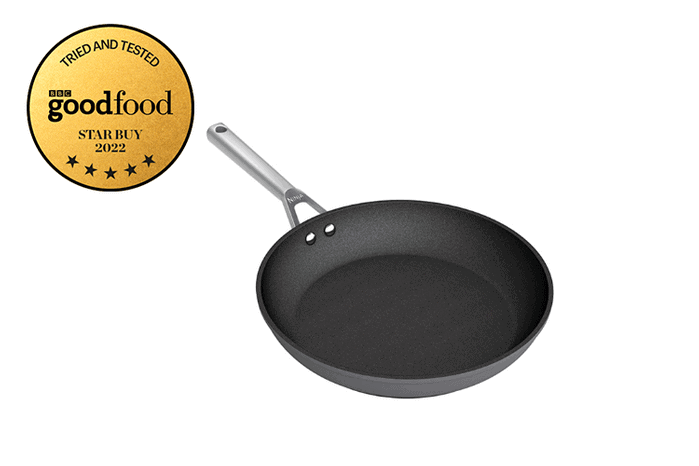Also quite sweet are the rash of fizzy drinks aimed at grown-ups. They use flavours such as beer, tea and spicy ginger, albeit with less sugar than in more mainstream sodas (around 4g per 100ml compared with Coca-Cola at 11g). Some use pungent additives like kombucha and vinegar to give them a savoury bite.
How we tested
We tried all the aperitif, spirit and vermouth-style drinks with a range of mixers including orange juice, sparkling water, tonic and ginger ale, as well as the serve recommended by the manufacturer.
Read on to discover our best buys. For more than 400 buyer’s guides, visit our review section and find taste tests of non-alcoholic beer and wine, plus we have non-alcoholic drink recipe inspiration. Also visit our alcohol-free drinks hub for more reviews, guides and mocktail recipes.
Best aperitifs and mixers
High Point Ruby Aperitif

Claiming to have produced the UK’s first non-alcoholic aperitif, High Point are paving the way for a new generation of premium spirits. Their vibrant ‘Ruby’ red aperitif is produced using a fermented tea base, which is then infused with fruit, herbs and botanicals from the surrounding Cornish countryside. This month-long process results in a rich, complex drink with a pleasing balance of sweet, sour and spice. Its herbal aroma gives way to a lingering aftertaste of bittersweet blood orange, reminiscent of Campari.
Available from:
Everleaf

The creation of London bartender Paul Matthew, this is inspired by a Middle Eastern drink called Salep. Everleaf has a strong vanilla, cream soda character that quickly gives way to bitter herbal notes. A versatile mixer, it worked with tonic water, and a fruit juice and fizzy water combo.
Available from:
Tuscan Tree

Flavoured with Italian blood oranges, lavender, lemons and juniper, this vibrant and citrusy aperitif is great for lovers of Aperol. Drink it on the rocks or topped up with tonic, then garnish with an orange slice. For a more floral alternative, try Tuscan Tree’s Cloudy Elderflower aperitivo. It reminded us of an elderflower cordial with an added layer of complexity from subtle botanicals and Sicilian lemon.
Available from:
Three Spirit

Three Spirit is made with the help of a team of bar industry stalwarts. It contains active ingredients that are meant to mimic the positive effects of alcohol. We can’t say we noticed any special feelings but it does have a distinctive taste that majors on malt and liquorice, and chimes well with ginger ale, adding bite and richness.
Available from:
New London Light Aegean Sky

Bursting with bright citrusy notes, this refreshing aperitif from Salcombe Distilling Co is inspired by the sun-soaked shores of the Mediterranean. Layers of bitter blood orange and bergamot are softened by earthy olive and a lingering herbaceous aroma of rosemary. It works best as a spritz, mixed with a light tonic or non-alcoholic sparkling wine, then served over ice. For those with a sweeter palate, I also recommend Salcombe Distilling Co’s other New London Light aperitif, Midnight Sun, which is infused with a light berry and pine scent.
Available from:
Senser Power

Joy, Love and Power are the three varieties that make up this range, which is so new you might have to wait a bit for your bottle to arrive. Power was our favourite. It gave tonic water a deep fiery taste with spice, bitter orange and vanilla. It also worked really well in a cocktail with orange and lemon juice, and fizzy water.
Available from:
¾ Tonic Maison

From Canada, this is a bitter syrup (so it contains lots of sugar) which you use like Aperol or Campari to make a low-alcohol spritz, or a measure turns an orange juice and soda into an occasion. We can see this becoming a regular purchase, especially as it’s less than half the price of some of its rivals.
Available from:
Nine Elms

This is aimed squarely at the restaurant trade for people to drink instead of wine. It’s made from a mixture of fruit, herbs and spices. Neat, it’s pleasant with raspberry notes and a little tannin. It’s also a good mixer which we tried in in a few cocktails as well as in a simple spritzer with sparkling water and a slice of lemon.
Available from:
Best gin alternatives
Tanqueray 0%

Blended with the four same signature botanicals as its classic London Dry Gin, we felt that Tanqueray’s 0% was the most convincing non-alcoholic gin alternative of everything we tried. Initially, the palate is hit by an invigorating burst of citrus and juniper, which gives way to more mellow notes of liquorice and herbs. Mixing with a plain tonic brings out the full flavour profile but this versatile spirit would also be suited to a range of gin cocktails.
Available from:
Atopia, spiced citrus

Because it does contain a little alcohol (0.5%), this is the odd one out – and there’s a little sugar added, too. But Atopia is the best low-alcohol gin substitutes we have tried. Adding it to tonic gives a distinct hit of juniper followed by floral notes, cinnamon and lemon. You could probably give this to your gin-loving friend and they would never suspect that there’s almost no alcohol in here.
Available from:
Best rum alternatives
Caleño Dark & Spicy

Fans of spiced rum will love Columbian-inspired Caleño’s non-alcoholic tropical spirit. Rich and tangy aromas of pineapple and coconut are complemented by warming cardamom and ginger spice. This spirit could suit a variety of cocktails but we found it mixed especially well with fruit juices, ginger beer and cola.
Available from:
Clean Co Clean R

Another convincing take on Caribbean-style rum, this golden-tinted spirit has a subtle spiced flavour with warming undertones of caramel and cayenne pepper. Free of sugar and sweeteners, Clean R makes a healthier alternative to a regular rum and each 50ml serving contains only 12 calories. In our opinion, it is ideally suited to mixing with cola, best enjoyed over ice with a slice of lime.
Available from:
Best vermouth alternatives
Aecorn Aromatic

This one is part of a range of three vermouth-style drinks produced by Seedlip. We tried them all and admired their pungent grown-up flavours, though you do need to be careful about mixing them as the bitterness levels are high. The Aromatic version worked beautifully with tonic water, creating a Campari-like taste, but fizzy water just made it taste unpleasantly bitter.
Available from:
Feragaia

Here’s a botanical drink from Scotland that has just been launched. Despite its lack of sugar, it manages to carry its distinctive flavours well with no unpleasant bitterness. There’s a vermouth-type quality with refreshing citrus notes and a fiery finish that is accentuated by the tonic water.
Available from:
Best tequila alternative
Clean Co Clean T

Clean Co has also turned its hand to producing an impressive alternative to blanco tequila (or silver tequila). Although it doesn’t have the signature burn of this clear spirit, it does recreate the fresh agave scent which pairs beautifully with lime juice and a pinch of salt in a margarita mocktail.
Available from Clean Co (£15 for a 700ml bottle)
Best pre-mixed non-alcoholic drinks
Highball alcohol-free cocktails

Looking for a party drink without the booze? Highball’s range of pre-mixed cocktails come in six classic flavours: Classic G&T, Pink G&T, Cosmopolitan, Italian Spritz, Mojito and Ginger Dram. We thought that all the drinks offered a sophisticated alternative and particularly enjoyed the tangy raspberry and juniper notes of the Pint G&T as well as the refreshing burst of citrus bitters in the Italian Spritz. An added bonus; Highball cocktails contain less than half the calories of standard cocktails and are free from artificial ingredients, sweeteners and preservatives. They are also gluten-free and suitable for vegan diets.
Available from Highball, (£10.99 for a case of 6)
Lo Bros, lime, lemon & bitters kombucha

Adding kombucha (fermented tea) is a great way to bring interesting flavours into soft drinks. Lo Bros is another brand we were very impressed by, especially the Lime, Lemon & Bitters with its sharp vinegary note. A lesson in how to do grown-up flavours in a soft drink.
Available from:
Shrb, cinnamon apple

is a producer based in Walthamstow, London, who are reviving the ancient art of shrub-making. Shrub is a kind of non-alcoholic drink made with vinegar that was popular in 18th-century England. This version tastes like apple pie, and who doesn’t like apple pie? You also get a tang from the vinegar.
Available from: Dry Drinker (£14.99+)
Mocktails nitro-charged slim cans

One of the leading producers of alcohol-free cocktails, Mocktails has released a new line of nitro-charged slim cans in the following four flavours: Mockarita, Mockapolitan, Mockscow Mule and Sansgria. Rather than being carbonated, these colourful cans are charged with nitrogen and which allows more of a gentle effervescence and lasting aromatic experience. Our clear favourite was the Mockscow Mule, a refreshing blend of Sicilian and Argentinian lemons which are given a warming kick from ginger root. As well as being ethically sourced and sustainable, each of these flavours are vegan, gluten free and relatively low in sugar and calories (less than 100kcal per 200ml can).
Available from: Mocktails website (£26.99 for a mixed pack of 12)
Genie, live soda, lemon & ginger

Genie make a range of sodas using live cultures (containing bacteria) and kombucha. This one has a nice freshness about it with lots of bite from the ginger. It tastes like it was made that morning in someone’s kitchen.
Best low-alcohol spirits
For those not cutting out alcohol altogether, there are a growing number of high-strength spirits available now which are designed to be served in very small portions with a mixer. As a result, their alcohol volume is diluted to a small fraction whilst also maintaining a decent concentration of botanicals for flavour.
Smidgin gin, Adnams

Southwold distillery Adnams’ new concept is a high-strength gin intended to create a low-alcohol serve without compromising on flavour. Don’t be fooled by the 50% alcohol volume – despite being stronger than most gins, Smidgin is specially crafted to be served in small 2.5ml measures with tonic water. This yields a full-bodied G&T with just a fraction of the alcohol (0.6% ABV) but a strong flavour due to its high concentration of botanicals. The 200ml bottle even comes with a copper spoon to allow precise measurement of each serving. We found each sip delivered a complex balance of botanicals, from fresh juniper to warming cardamom and floral hibiscus, culminating in a crisp, dry finish.
Available from Adnams (£26 for a 200ml bottle)
Hayman’s Small Gin

This is another full strength gin (43% ABV) but so strongly flavoured with botanicals that you only need a thimbleful. The result when mixed with tonic is a G&T that tastes as good as the standard Hayman’s gin but only 0.2 units – about a fifth of the alcohol of a standard one.
Available from Haymans (£26 for a 200ml bottle).
Related content
Best no and low-alcohol drinks
Best kombucha
Best non-alcoholic beer
Best non-alcoholic wine
Best non-alcoholic and sparkling wines
Non-alcoholic cocktail recipes
What’s your take on non-alcoholic ‘spirits’? We’d love to hear your recommendations. Leave a comment below…
This review was last updated in August 2020. If you have any questions, suggestions for future reviews or spot anything that has changed in price or availability, please get in touch at goodfoodwebsite@immediate.co.uk.


